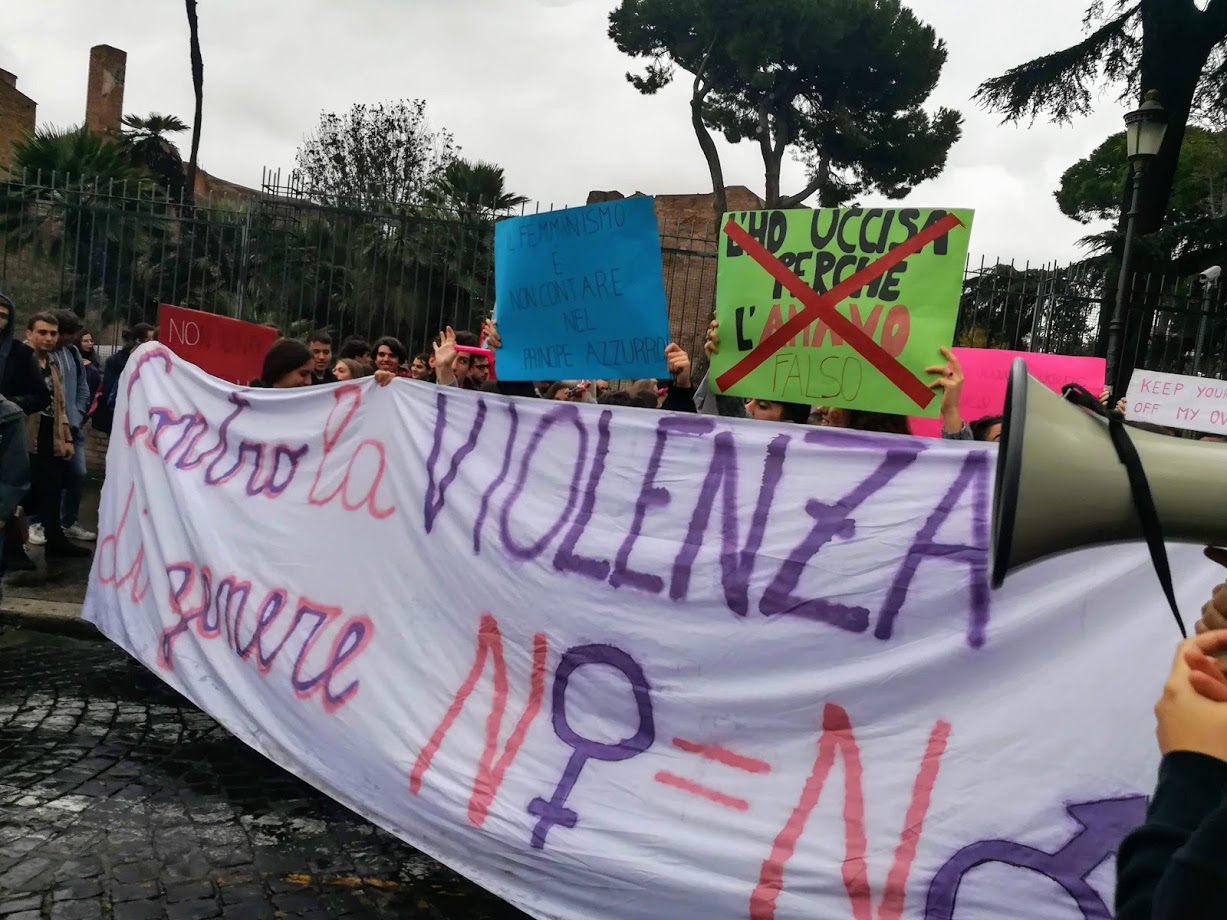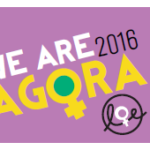“Why is Italy ground zero for the war on women?” – Buzzfeed asked last week as Italy hosted the 13th annual ultra-conservative World Congress of Families, a network of anti-abortion and anti-LGBTQ+ rights activists and their political allies. This event was met with thousands of activists from across Europe protesting its violent and archaic agenda. The statement implicit in Buzzfeed’s question is an important one: Italy is indeed a leading European nation on the war on women’s bodies and autonomy.
The real question for me, as an Italian woman, consistently having her rights stripped away, reinstated and then stripped away again with every government change, is– what can we actively do to safeguard women’s rights in Italy? The upcoming European Parliament elections in 23-26 May 2019 provide an excellent opportunity to build a strong feminist EU that can serve as a safety net for Italian women.
Women’s rights in Italy
So, to begin with, what is the current state of women’s rights in Italy? Whilst the gender pay gap appears to be a little over 5%, the lowest in the EU except for Romania, it is important to note that under half of Italian women of working age are actually employed, despite more than half having a degree. Additionally, in 2017 a study by the World Economic Forum found around 62% of Italian women’s work each day is unpaid.
On top of this, in 2017 121 women were victims of femicide, a word which its existence itself proves the inherent violence of the patriarchy that persists today. More shocking still is that 59% of these were killed by a former partner, and 89% of these occurred in a family setting. Another study found that about 3.5 million women in Italy have been victims of stalking at least once, 2.2 million of which were stalked by an ex-partner.
Italy doesn’t just need women candidates, it needs feminist candidates.
Moreover, women’s rights in Italy have taken several severe blows since the instatement of the far-right populist government between Lega and the Five Star Movement. One extremely worrying development is Verona town council’s Zelger law, named after its pioneer Lega’s Alberto Zelger, and which has been already introduced in several local governments across northern Italy. The Zelger law funds centres that help divert women from having abortions by swaying them to turn to adoption, allowing Verona to declare itself as a ‘pro-life’ city, which drew the World Congress of Families to the city in the first place. In addition, Italy’s law legalising abortion passed in 1978, known as ‘Law 194’, allows health care professionals to deny a pregnant woman of an abortion on the basis of moral grounds. This applies even when a women’s life is in in danger, and has previously led to the death of a woman in Catania (the doctors were consequently found guilty of manslaughter).
The Lega party has also proposed a decree, which would drastically reverse protections for women and victims of domestic abuse, according to a United Nations human rights official. The Decree introduces provisions that would not only fuel gender-based discrimination but also deprive survivors of domestic violence of important protections, such as by impeding access to documents to judicial authorities in determining the case.
In addition, the government’s crackdown on migrant’s rights continues to deny migrant women their fundamental rights, whilst further pushing them into the black market, where they face increased violence and exploitation.
Moreover, with the representation of women in politics remaining at 30%, which is still relatively low, Italy doesn’t just need women candidates, it needs feminist candidates. With the gender quota being filled by women like Giorgia Meloni, a far-right anti-abortion politician for the Brothers of Italy party, it’s only through a rise of feminist representation that we can reverse the current backwards facing trend facing women’s rights. Since the recent Italian elections did not bring such a change, we need to turn to the upcoming EU elections to do so.
Why does Italy really need a feminist EU?
The EU albeit often shrugged off as a soft power with little to no impact on our daily lives, leaves a significant footprint on citizen’s rights. The EU has certain instruments created particularly to aid women’s rights and gender equality. For example, the European Commission’s Gender Equality Strategy works to promote women’s access to and participation in the labour market, combating gender stereotypes in career selection, offering more support to reconcile work and family life, among much more. Also, the European Parliament’s Committee on Women’s Rights and Gender Equality (FEMM) visited Italy on a fact-finding mission in December 2018 denouncing these worrying developments regarding women’s rights, such as the Decree. Whilst these are important committees and initiatives that we still desperately need, we need the women’s rights agenda to not be cast aside as if it can just be a self-contained battle for these committees. No, the feminist agenda must permeate all other areas of EU legislation and policy.
The EU, born from the ashes of two major conflicts, built its foundation on unity, human rights and solidarity.
Indeed, all too often, women entering national, regional and international policy-making are relegated to such fields, but we need feminist candidates in a myriad of committees on topics such as security and defence, migration and citizenship, budgetary affairs and so on. Only in this way can we effectively ensure to dismantle the patriarchal chokehold, and protect women across Europe, including Italy.
Italy is traversing a difficult political moment, with the rising and strengthening of the far right emboldening and mainstreaming the war on women. Italians are looking to European partners with the upcoming European elections for help, that can help rebuff and counteract this growing hateful trend in Italy and across Europe. The EU, born from the ashes of two major conflicts, built its foundation on unity, human rights and solidarity. These values are currently being put to the test – and on 23-24 May you are given an opportunity to reclaim them, and put feminism back on the agenda – for women in Italy and beyond.





[…] Posts z.B. zu der Frage „Wie kann ich für ein ökofeministisches Europa stimmen?“ oder „Warum kann meine Stimme für ein feministisches Europa dazu beitragen, der Krieg der italienischen e…“ (Die Beiträge sind auf Englisch, ich habe mir erlaubt, die Titel frei und auf die Schnelle zu […]